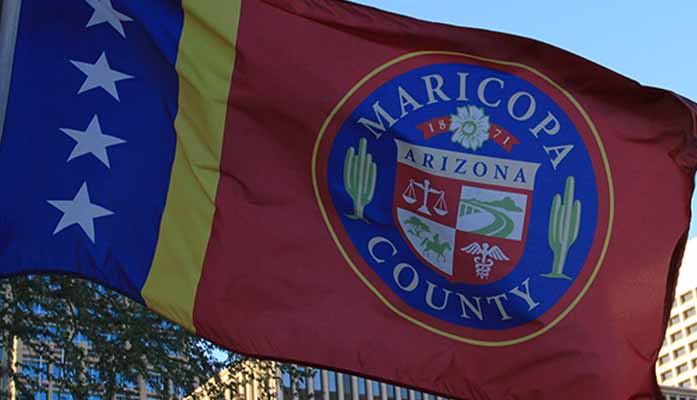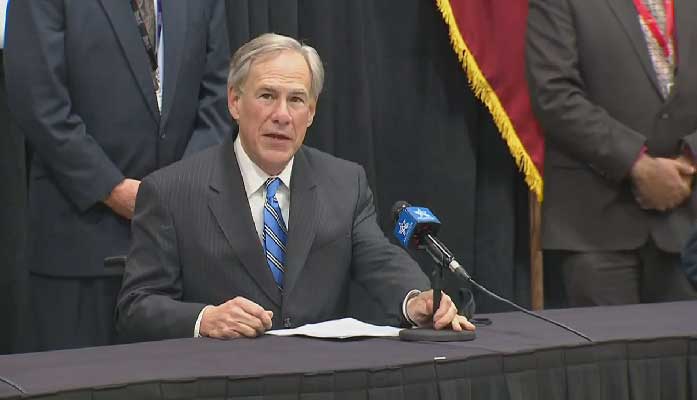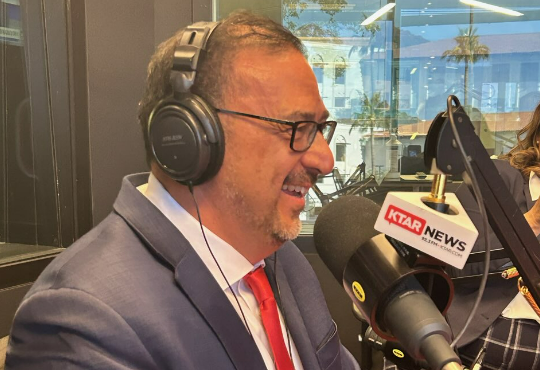
by Ethan Faverino | Aug 5, 2025 | Economy, News
By Ethan Faverino |
Maricopa County has secured a spot among Arizona’s top destinations for retirees, according to a new study by SmartAsset.
The study evaluated counties across the United States based on three key factors: tax-friendliness, access to medical care, and social opportunities, putting Maricopa County as an ideal location for those planning the golden years of retirement.
To assess tax-friendliness, the study calculated effective income and sales tax rates for a retiree earning $35,000 annually from retirement savings, Social Security, and part-time work, determining disposable income after taxes.
For medical care, the study measured the number of doctors’ offices per 1,000 residents, and the same for social opportunities, which measured the number by recreation and retirement centers per 1,000, along with the percentage of seniors in each county’s population.
Maricopa County ranked sixth in Arizona with a Best Place to Retire Index score of 43.1.
The county excels in medical care access, with 3.28 medical centers per 1,000 residents, one of the highest rates in the state.
With a tax burden of 15.82% and an offering of 0.12 recreation centers and 0.4 retirement centers per 1,000 people, Maricopa County provides a balanced environment for retirees seeking affordability, healthcare, and an active lifestyle.
While its senior population is lower at 15.99% compared to the top-ranked La Paz County (42.23%), Maricopa County’s urban amenities and vibrant community make it a standout choice.
Retirement dreams of adventure and relaxation require careful financial planning, often overlooked within daily expenses.
Experts recommend saving 10%-15% of annual income and targeting 25 times the yearly expenses to replace 70%-80% of pre-retirement income. For example, if somebody spends $50,000 annually in retirement, they should aim to save around $1.25 million through 401k, retirement, and other investments.
Maricopa County’s high density of medical facilities ensures retirees’ healthcare needs are met, addressing the rising healthcare costs that often challenge retirement budgets. Its moderate 15.82% tax burden supports financial planning by allowing retirees to stretch their savings further.
Ethan Faverino is a reporter for AZ Free News. You can send him news tips using this link.

by Matthew Holloway | Aug 5, 2025 | News
By Matthew Holloway |
Arizona State Representative John Gillette (R-LD30) issued a strong condemnation of Texas Democrats who have fled their state in an effort to deny the legislature a quorum over upcoming redistricting proposals. In fleeing the state, the leftist lawmakers have ground progress on not only the redistricting, but bills addressing the devastating Hill Country flood as well, earning them wide criticism, arrest warrants, and potential expulsion.
Texas State Representative Ann Johnson (D-HD134) defended the ongoing abdication of duty in a post to X saying, “Breaking Quorum is an exceptional and extraordinary act of last resort.” Johnson’s post ingored the fact that Democrat lawmakers did similar as recently as 2021 to delay mail-in ballot reform and before that in 2003 to also oppose redistricting.
Gillette’s response to Johnson was scathing. “Breaking quorum is a cowardly act,” he wrote. “You swore an oath, not only to the Constitution but your State as well as its people. Now you hide in leftist states. What a disgrace. You can try to church this up all you want….not working[.] Cowardice and criminal, sum up the democrat party.”
The Republican lawmaker’s response to a video post from Texas State Representative Ron Reynolds (D-HD27) made on an airliner was even more direct. Answering Reynolds’ claim to be “breaking quorum today to stop Texas Republicans from passing racially gerrymandered maps,” Gillette replied, “Cowardly P”ssy said what? Go back and do your job.”
As of this report, the Texas legislature has voted to empower its Sergeant-at-Arms to locate and arrest the more than 50 Democrat legislators who have abandoned the Special Session called by Governor Greg Abbott to respond to the flooding emergency on the Guadalupe River, and which has also taken on redistricting.
As reported by the Texas Tribune, House Speaker Dustin Burrows slammed the Democrats from the House on Monday saying they had “shirked their responsibilities,” and thanking those present. “You understand that the issues before us, disaster recovery, fighting for the families who lost loved ones in the floods, human trafficking and more, are not abstract policy debates,” Burrows said with a rebuke toward the Democrats. “Instead of confronting those challenges, some of our colleagues have fled the state and their duty.”
Matthew Holloway is a senior reporter for AZ Free News. Follow him on X for his latest stories, or email tips to Matthew@azfreenews.com.

by Matthew Holloway | Aug 4, 2025 | News
By Matthew Holloway |
Arizona’s Democrat Secretary of State Adrian Fontes fueled a new wave of condemnation during a Wednesday War Room segment of ‘Outspoken with Bruce and Gaydos’ on KTAR with Republican Arizona Senator John Kavanaugh. During the segment, Fontes brazenly described law enforcement as “hooded thugs.” Fontes then went on to deny his words minutes later when called Kavanaugh, a former police officer, called him out for it.
Saguaro Group and Arizona Capitol Oversight founder Brian Anderson drew attention to the moment in a post to X writing, “Democrat @Adrian_Fontes just went on the radio and smeared Arizona law enforcement officers as “HOODED THUGS” for enforcing border laws … and then nervously claimed “I didn’t say the word thug” after Senator @JohnKavanagh_AZ called him out for it[.]”
Republican Congressman and gubernatorial candidate Andy Biggs also called out Fontes on X, saying, “Arizona is less safe today because Democrats like Katie Hobbs and Adrian Fontes think our law enforcement agents are ‘thugs.’ Our safety is at risk. We cannot afford four more years of them in charge.”
In full context, Fontes began the exchange by responding to a question from co-host Bruce St. James, who asked how illegal immigrants are being selected for arrest and deportation. St. James asked, “How are these people [illegal immigrants] then being chosen picking picked out of a group then? What are the parameters people are using?”
Fontes answered, “Uh, whatever they are, they are un-Christian. I can’t see how anybody can say they’re a Christian and treat someone from another land in their own land this way. It’s mean is what it is. It’s mean-spirited. Uh, a lot of these folks are being picked up by, you know, hooded thugs in the street in the most un-American way. So, I just think the spirit behind this, whether or not the poll numbers are up or down, I mean, that’s kind of the window dressing here. At the end of the day, what we’re looking at is uh scaring the hell out of people on purpose because we don’t like them. And it’s an un-Christian-based way of not liking people because just cuz they’re from somewhere else.”
Defending the use of masks to protect officers from the dangerous leftist tactic of ‘doxxing’ law enforcement officers and their families, making them vulnerable to targeted violence, Kavanaugh called out the Democrat Secretary of State for his comment: “I’m proud to have been a cop for 20 years. I’m proud to have helped immigration when I was a cop.” Kavanaugh said.
To which Fontes replied, “I appreciate what law enforcement agents do when they do it to protect or to…”
But Kavanaugh, having none of it, cut him off, “But you call them thugs!”
Fontes immediately denied the words he had spoken just over four minutes before, claiming, “I didn’t say the word thug. Now you’re lying.”
Kavanaugh then challenged him, “Play the tape. What? What? Mask thugs, or did you use a similar derogatory term? You didn’t say law enforcement officers.”
Fontes avoided the question and continued to attack the enforcement of immigration laws, saying, “You remove humanity, dignity, mercy, and decency from governance. What you’re doing is saying the most powerful will rule over the least without mercy.”
However, Kavanaugh wouldn’t let the comment pass unanswered, “So when I was a cop and I locked up somebody who committed a crime, I was a thug? I was not being humane because I enforced the law?”
Fontes answered conditionally, “When the law is amnesty, and people are fleeing places where they might get killed if they stay there?” He continued, claiming, “This home of freedom is now turning into a place of fear because of these ridiculous policies.”
Kavanaugh replied tersely, “People being removed do not have claims of asylum. If they did, they’d be on hold.”
Matthew Holloway is a senior reporter for AZ Free News. Follow him on X for his latest stories, or email tips to Matthew@azfreenews.com.

by Ethan Faverino | Aug 4, 2025 | Education, News
By Ethan Faverino |
Arizona State Superintendent of Public Instruction Tom Horne criticized recent remarks made by Governor Katie Hobbs’ spokesman, Christian Slater, who labeled the Empowerment Scholarship Account (ESA) staff as “wasteful bureaucracy.”
Horne called the comments a reckless insult to dedicated state employees who are understaffed, under pressure, and focused on serving the parents seeking the best education for their children.
“The governor’s spokesman has demeaned state employees by calling ESA professionals a ‘wasteful bureaucracy.’ Defining people as waste is a terrible insult,” said Superintendent Horne. “No matter what her (Governor Hobbs) personal opposition, the ESA program exists to give parents’ choice when local schools don’t meet their children’s needs, and people are needed to serve those parents. That is not wasteful; it is essential.”
ESA Director John Ward, in a recent legislative testimony, highlighted the program’s significant growth and challenges.
In the 2025 fiscal year, the ESA program distributed $869 million, surpassing the $769 million allocated for all federal education programs in Arizona.
Despite managing a larger budget, the ESA program has only 40 employees, compared to the 300 staff members handling federal programs at the Arizona Department of Education.
Since its start in 2011, the ESA program has grown from $100 million and 11,000 accounts to now, nearly $1 billion and over 90,000 accounts today, with no additional staff to support the increased workload.
“We are always in survival mode,” Ward told lawmakers. “Our main responsibility is to get students who want to be in the program into the program, to review their purchases, and provide customer service. That is our core mission, and that is what we are focused on.”
Horne also noted that in 2025, the Department of Education requested 12 additional staff members to manage the growing program’s demands. The House supported this request in its budget, but Governor Hobbs refused to consider it.
“To deny these resources while allowing her spokesman to insult state employees serving parents is beyond the pale,” Horne said.
Ethan Faverino is a reporter for AZ Free News. You can send him news tips using this link.

by Jonathan Eberle | Aug 4, 2025 | News
By Jonathan Eberle |
The Arizona State Treasurer’s Office announced a major financial milestone last week: the Local Government Investment Pool (LGIP) has reached a record $7.6 billion in total assets. According to State Treasurer Kimberly Yee, the fund has grown by $4.3 billion — a 131% increase — since she took office in 2019.
The announcement came during the July State Board of Investment meeting, where Treasurer Yee presented the latest performance report. The LGIP, a fixed-income investment pool managed by the Treasurer’s Office, serves as a centralized option for local governments — including cities, counties, towns, and special districts — to invest public funds with an emphasis on safety and competitive yields.
The report shows that assets under management are up 7.08% year-over-year, with June earnings totaling more than $27.4 million, a 3.18% increase compared to the same month last year.
“We are proud to provide responsible stewardship of public funds while ensuring liquidity, safety, and strong returns,” Treasurer Yee said at the meeting.
Yee’s career in public service spans more than a decade, including eight years in the Arizona Legislature, where she served as Senate Majority Leader. Since assuming leadership of the Treasurer’s Office, Yee has emphasized transparency, performance, and accessibility. Under her watch, the state has expanded participation in the LGIP, which provides local government entities a low-risk, professionally managed option for investing taxpayer dollars.
The Office operates four separate LGIP pools, each tailored to meet the liquidity and investment needs of its contributors. By pooling resources, smaller jurisdictions gain access to economies of scale and greater portfolio diversification.
Jonathan Eberle is a reporter for AZ Free News. You can send him news tips using this link.





